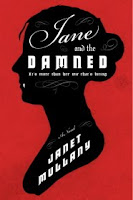A week ago, I told you what Wellington and Napoleon were doing on that date 195 years ago. Today 195 years ago, a young Nathan Rothschild, who had been instrumental in providing and delivering gold to pay for the war, stood by a pillar in the Stock Exchange. His efficient network of communication had delivered to him news of the Allied Victory at Waterloo. Legend has it that he deliberately gave the impression that Wellington had lost the battle, by looking gloomy and selling Consols (bonds) precipitating a panic of selling. Then he supposedly bought up the Consols at a depressed price, knowing their value would soar when Wellington’s courier finally reached London. If I’m remembering correctly, Heyer used this version of events in A Civil Contract.
But the truth of Rothschild’s involvement was somewhat different, as you can see in this YouTube video:
The Rothschilds assumed, as did everyone else, that England and its allies were facing a protracted war once again. Nathan Rothschild had bought up gold to provide to Wellington to pay for the war effort, but after the surprising decisive victory, the price of gold would plummet and Rothschild would suffer a great loss. Instead he gambled on the rise of the bond market. He bought up bonds and sold them two years later at a whopping 40 per cent profit. So he did make money, but he’d taken a great risk and had not exploited the country. His provision of gold, after all, financed the war effort. Of course he made a profit from that, too, originally.
Wellington’s dispatch arrived forty hours later than Rothschild’s. Here’s an account from The Telegraph’s review of Peter Hofschröer’s book, Wellington’s Smallest Victory:
News of the Battle of Waterloo was rushed to London by Harry Percy, Wellington’s only surviving unwounded ADC. He carried the despatch in a velvet handkerchief sachet an admirer had thrust into his hand as he hurried from the Duchess of Richmond’s famous Brussels ball on the eve of battle. He had no sleep that night, nor the five nights following, and had to row himself ashore from the middle of the Channel. His scarlet and gold tunic was still torn, dirty and blood-stained when he burst into a St James’s ballroom, a captured French standard in each hand, and dropped to one knee before the Prince Regent. It was Shakespearean.
Think of how instantaneously information reaches us today!
I really do hate to think about investments and bonds and profiteering now or in the Regency, although I think the sending of information so quickly, like Rothschild arranged, would make for an interesting episode in a book. That would be exciting!
I’m not sure I’d find banking in the Regency the stuff of Romance. Would you?

Come join the conversation on Diane’s blog on Thursday when Mary Blayney and I talk about the Regency and her new release (as of tomorrow, June 22) Courtesan’s Kiss. Mary will be our guest here at Risky Regencies on July 18.










